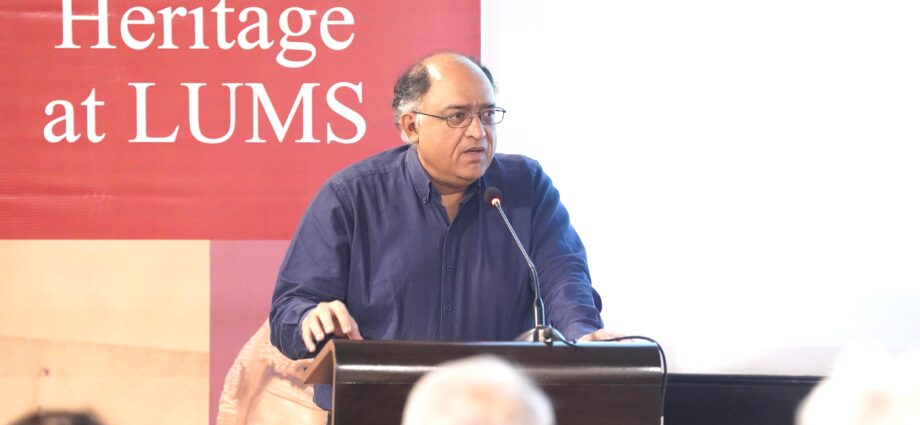Heritage at LUMS’ Initiative to Reclaim and Reimagine Pakistan’s Cultural Memory
LAHORE ( WEB NEWS )
To imagine South Asia’s future, we must connect to its past: this sentiment framed the launch of ‘Heritage at LUMS’, an initiative dedicated to preserving, digitising and reimagining Pakistan’s cultural memory for future generations. To celebrate the launch, LUMS welcomed faculty, students and the wider community at the university on September 26.
“Pakistan is the inheritor of an extraordinarily rich and unparalleled heritage,” said Dr. Ali Raza, Chair of the Humanities and Social Sciences department at LUMS. “And yet, we are at the risk of losing these treasures.”
The event opened with an address by Dr. Ali Khan, Dean of the Mushtaq Ahmad Gurmani School of Humanities and Social Sciences, and featured detailed presentations on some of the work being done by the faculty, including Dr. Ali Raza, Dr. Ali Usman Qasmi, Dr. Nadhra S.N. Khan, Dr. Suleman Shahid and Dr. Murtaza Taj. They highlighted more than a decade of collaborative work across two schools at LUMS.

Projects ranged from digitising endangered monuments and archives to curating immersive exhibitions and sound collections. This multidisciplinary practice, uniting the humanities and computer science, has enabled faculty to preserve history, art and culture in new ways and to build capacity for high-level heritage projects. “Together, we are storytellers of heritage—making the past tangible, alive and meaningful,” said Dr. Khan, Associate Professor of Art and Architectural History at LUMS.
The launch also unveiled Icons of Devotion: Jain Artefacts in the Lahore Museum, a beautifully curated catalogue bringing to light a little-seen collection. Developed through months of archival research, documentation and object study, the project involved students working alongside faculty and museum staff to trace origins, analyse inscriptions and curate narratives around the artefacts. In doing so, it reclaims a forgotten chapter of Pakistan’s history and makes it accessible to wider audiences.
The presentation of the Jain catalogue to the Director of the Lahore Museum symbolised the collaborative spirit underpinning the initiative, while ongoing projects link LUMS faculty and students with national and international partners committed to heritage preservation and access.
Placing the initiative in a wider civic context, Vice Chancellor Dr. Ali Cheema noted, “The deeper mission for us is to bring heritage back not just as preservation of the past but as something central to our thinking in this society as it moves forward.”
By giving voice to what has long been forgotten, Heritage at LUMS signals Pakistan’s commitment to ensuring its fragile but rich heritage thrives in the digital age—serving as a bridge between past wisdom and future possibility, and positioning LUMS as a leader in cultural preservation and digital humanities across the region.

